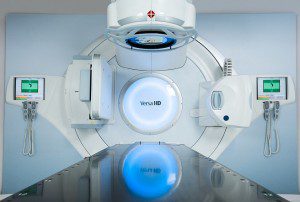
It’s out with the old and in with the new at the Macarthur Cancer Therapy Centre, Campbelltown Hospital – giving the fight against cancer a boost.
A new radiation therapy machine has just replaced one that has been operating in the centre since 2005.
Which means the therapy centre can not only continue to provide an excellent standard of advanced treatment for more than 500 Macarthur region cancer patients every year, but in some cases even better.
Director of Radiation Oncology for Macarthur and Liverpool Cancer Therapy Centres, Doctor Dion Forstner, said the upgrade also meant the centre would be able to increase capacity to treat more patients.
“The administration of radiation will now be more efficient than ever and will allow us to treat patients more quickly with greater safety,” he said.
[social_quote duplicate=”no” align=”default”]“It also means waiting times may be reduced for patients who have been advised to receive radiotherapy.”[/social_quote]
The upgrade is part of the ongoing commitment of the centre to provide the best possible care and treatment to cancer patients living in the Macarthur region.
In September 2014, the introduction of a new, advanced radiation therapy treatment machine called the Elekta Versa HD meant Campbelltown Hospital was the first hospital in Australia to begin treating patients with such an advanced process.
These upgrades allow the more than 500 cancer patients who are treated with radiation therapy in the centre each year to receive even more advanced treatment than ever before.
“This new technology gives much better imaging of patients during their treatment, to really focus on their tumours,” Dr Forstner said.
“We’re expecting an increased capacity in the centre of about 30 per cent thanks to these upgrades,” he said.
[social_quote duplicate=”no” align=”default”]“One in two patients with cancer should have radiation therapy at some time following diagnosis, whereas less than one in three currently receives it.[/social_quote]
“So we now have the capacity to meet an increase in demand as well as to allow us to enrol more patients in important research trials.”
